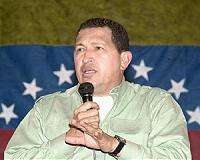| . |  |
. |
Istanbul (AFP) April 1, 2011 Turkey's ambitious diplomatic policy of "zero problem" with its neighbours, notably aimed at building closer ties with Arab leaders, is hampered by the ongoing rebellions in the Middle East, experts said. "The 'zero problem' policy has been overtaken by events," Semih Idiz, columnist of the liberal daily Milliyet, told AFP. "It is a policy based on status quo, not on evolution ... the region has not fitted Davutoglu's vision," he said. Ahmet Davutoglu, foreign minister of Turkey's Islamist-rooted Justice and Development Party (AKP) government, is the architect of his country's highly active "zero problem" policy. Under the eight-year-long AKP rule, ties with Iran, Syria, Iraq and many Arab countries have seen a spectacular revival, with Ankara signing a series of trade deals and visa-free travel accords with countries in the region. Turkish leaders have visited Arab countries many times over the last two years, paying special interest to neighbouring Syria, where President Bashar Al-Assad has been challenged by unprecedented popular unrest. Prime Minister Recep Tayyip Erdogan said Monday he had "advised" Assad over the phone to respond positively to the reform demands of his people. The Turkish government was bewildered by the bloody uprising in Libya, where about 200 Turkish companies are involved in construction projects amounting to more than $15 billion (11 billion euros). Turkey's reaction to the revolt against Moamer Kadhafi's regime was described as "impossible to understand" by Francois Heisbourg, special adviser to the Foundation of Strategic Research (FRS) in Paris. "Military intervention by NATO in Libya or any other country would be totally counter-productive," Erdogan said two weeks ago, some five months after he was in Tripoli to receive the Kadhafi International Prize for Human Rights. But the Turkish parliament last week finally approved sending warships to under NATO command to enforce a UN arms embargo. And earlier this week, Turkey endorsed the alliance's takeover of all military operations in Libya. "The policy of 'zero problem' has been swept away by the wave of democracy" in Arab countries, said analyst Mehmet Ali Birand. "Turkish diplomats have to change everything, as they don't know what to do now," he said. "The problem for the Turks in Libya is to safeguard important economic interests, while not losing face and not upsetting Turkish public opinion," Birand added. Prior to general elections in June, the AKP has been reluctant to offend its electorate by condoning Western strikes on a Muslim country like Libya, Birand added. "But in the end, Turkey will follow the decisions of the United States," he said. In fact, said Milliyet's Idiz, the policy of "zero problem" was more "a desire than a policy." Not only it did not succeed in the Arab world, but it failed to produce notable results for Turkey's other neighbours as well, he said. The reconciliation process with Armenia is at a stalemate, while problems with Greece on issues such as borders and Cyprus remain.
Share This Article With Planet Earth
Related Links Democracy in the 21st century at TerraDaily.com
 Press freedom award goes to -- Hugo Chavez
Press freedom award goes to -- Hugo ChavezBuenos Aires (UPI) Mar 30, 2011 Argentina has bestowed its press freedom award on Venezuelan President Hugo Chavez despite the country's draconian treatment of independent or privately owned media companies. Just when international press freedom campaigners and human rights organizations renewed condemnation of Venezuelan attempts to dismantle independent media companies, the University of La Plata heaped praise on Ch ... read more |
|
| The content herein, unless otherwise known to be public domain, are Copyright 1995-2010 - SpaceDaily. AFP and UPI Wire Stories are copyright Agence France-Presse and United Press International. ESA Portal Reports are copyright European Space Agency. All NASA sourced material is public domain. Additional copyrights may apply in whole or part to other bona fide parties. Advertising does not imply endorsement,agreement or approval of any opinions, statements or information provided by SpaceDaily on any Web page published or hosted by SpaceDaily. Privacy Statement |